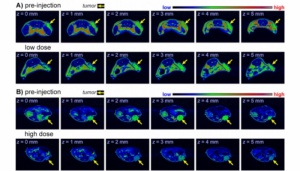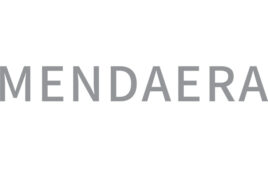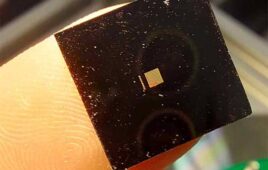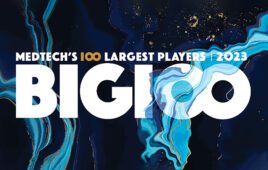Researchers at MIT and the University of Nebraska have developed a contrast agent that is metal-free, which could make it safer for certain individuals, according to a new report.
The groups said they have created a metal-free contrast agent which could be safer for high-risk groups, as the fluid uses organic molecules called nitroxides, according to an MIT News release.
The agent could possibly be used to generate more informative MRI scans of tumors due to its ability to accumulate at a tumor site for hours without causing harm, according to the report.
Most MRI contrast agents contain gadolinium which are usually excreted by the kidneys within approximately 30 minutes, making them unusable for people with kidney problems or damage.
“Gadolinium agents are by far the most commonly used, clinically. However, people do have some safety concerns about them, despite their wide use. There has been interest in going to non-gadolinium-containing contrast agents,” Alan Jasanoff of MIT said in a prepared statement.
Other, less common contrast agents are made from iron oxide nanoparticles, which are slightly safer due to naturally occurring iron in the body, though those agents also have safety drawbacks, according to the report.
Researchers said the nitroxide molecules they created could be designed to carry drugs in addition to their function as MRI contrast agents, allowing for long-term imaging of tumors to show how well the attached drugs are working.
“This is an entirely organic, metal-free MRI contrast agent that would allow cancer researchers to start to think about how to image tumors in a dynamic way over long periods of time,” senior study author Jeremiah Johnson of MIT said in a press release.
[Want to stay more on top of MDO content? Subscribe to our weekly e-newsletter.]





